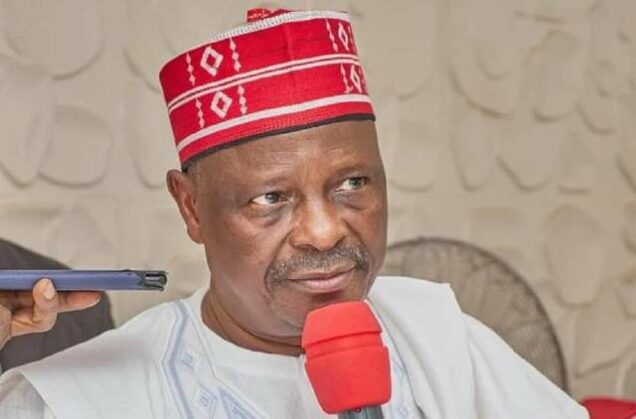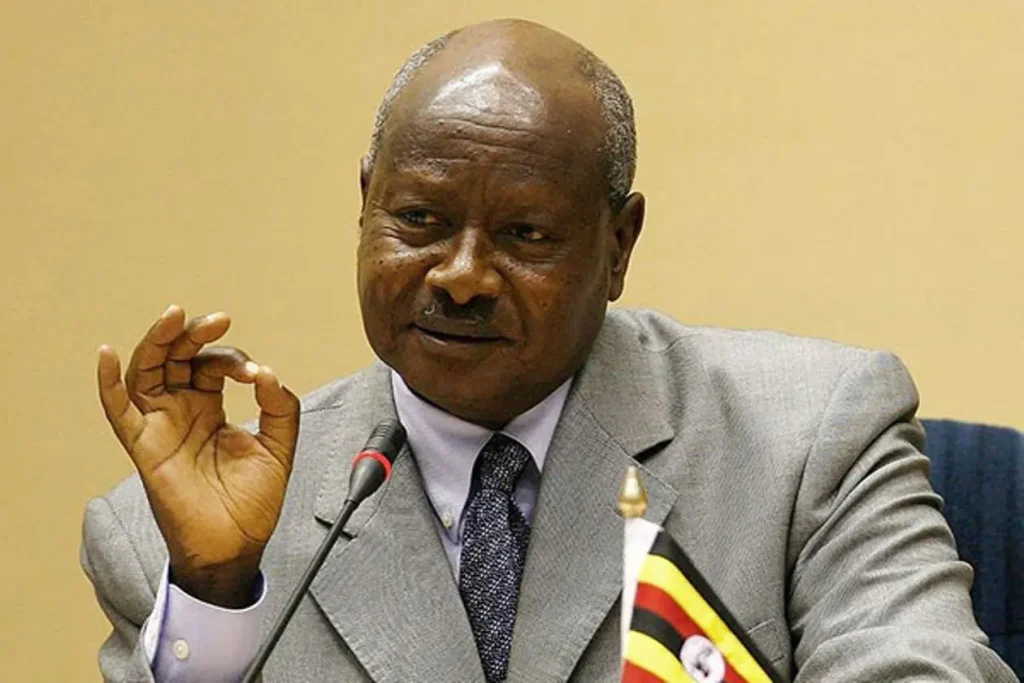As Liberia prepares for the historic inauguration of Joseph Boakai, its 26th president, the nation stands at a crossroads, poised for transformation. Boakai’s journey from a remote village in Lofa County to the pinnacle of Liberian politics reflects a story of resilience and commitment to change.
Born in 1944, Boakai emerged as a prominent figure in Liberian politics. His credentials include serving as Minister of Agriculture and later as Vice President under President Ellen Johnson Sirleaf. Despite a hard-fought presidential bid in 2017, Boakai’s dedication to anti-corruption measures and grassroots initiatives has garnered him a strong support base.
However, as Liberia ushers in a new era, the challenges are stark. The nation grapples with endemic corruption, widespread poverty, and a fragile economy. The disillusionment following the tenure of outgoing President George Weah underscores the urgent need for tangible progress in addressing these pressing issues.
Liberia’s economic woes are underscored by sobering statistics. The International Monetary Fund’s data paints a stark picture of poverty, with over 50% of Liberians living below the poverty line. The nation’s ranking in the Rule of Law Index and its fiscal position reflect the complex web of obstacles that Boakai must navigate as he assumes office.
Amidst these challenges, the plight of Liberian youth remains a focal point. High unemployment rates and the absence of robust social safety nets exacerbate the struggle for a better future. Additionally, systemic issues such as corruption, violence against women, and regional disparities underscore the multifaceted nature of Liberia’s regeneration.
As President Boakai steps into his role, the world watches with bated breath, hopeful for a resurgence of a nation with a rich but tumultuous history. The path to renewal will necessitate astute policy-making, international collaboration, and above all, a steadfast commitment to uprooting the entrenched barriers that have hindered Liberia’s progress.
Liberia stands poised at a crucial juncture, and as Boakai assumes leadership, the collective hope is that his tenure will chart a new trajectory, steering the nation towards a future defined by equitable growth, governance reform, and tangible improvements in the lives of all Liberians.
Liberia’s Struggle with Development: A Closer Look at Economic Challenges, Education, and Political Engagements
Liberia’s economic stability has been a matter of concern, with the growth rate averaging 3.63 per cent since 2022, representing a slight decline from the previous year. Issues pertaining to inadequate job creation and employment provision have plagued the government’s performance since 2018, contributing to the country’s economic woes.
Educational attainment and public spending on education in Liberia are notably low compared to its Sub-Saharan Africa (SSA) and lower income countries (LIC) counterparts. The lackluster state of the education system is evident in the low net enrollment of school-age children, subpar harmonized test scores, and meager public expenditure dedicated to education. With approximately half of school-age children attending and high dropout rates in primary schools, Liberia’s education sector requires urgent attention.
Infrastructure deficiencies, such as the limited percentage of paved roads and inadequate electricity production and consumption, further hinder Liberia’s economic potential. The country’s capital accumulation is impeded by a lack of domestically financed public investment, with only a minimal fraction sourced from the central government’s budget, constraining the productivity of new investments.
Moreover, Liberia’s history of civil wars has left a lasting impact, plunging the country into poverty, with real GDP per capita languishing well below the Sub-Saharan Africa (SSA) average. The government’s ambition to achieve sustainable inclusive growth through its national development plan, the Pro-Poor Agenda for Prosperity and Development (PAPD), necessitates a strategic overhaul to uplift living standards and spur economic progress.
Amid these challenges, the Economic Community of West African States (ECOWAS) plays a pivotal role in fostering economic growth, reducing regional trade barriers, and addressing peacekeeping and security concerns. The organization aims to standardize trade and border policies among its member countries while actively engaging in peace-building efforts and conflict prevention.
The recent engagement of ECOWAS in Liberia’s electoral processes underscores its commitment to ensuring stability and democratic consolidation. The 2023 ECOWAS Observer Mission (EOM) facilitated by a team led by Professor Attahiru Jega, former Chair of Nigeria’s Independent National Electoral Commission (INEC), demonstrates the regional body’s dedication to supporting democratic processes in Liberia.
In conclusion, Liberia grapples with multifaceted challenges spanning economic, educational, and political domains, necessitating concerted efforts from both domestic stakeholders and regional partners like ECOWAS to drive sustainable development and progress.
ECOWAS and the Evolution of Democracy: A Case Study of Liberia’s Political Landscape
The 2023 ECOWAS Observation Mission (EOM) in Liberia signifies a pivotal shift in regional diplomacy and governance. With a focus on deepening democracy, fostering economic development, and ensuring peace and stability, ECOWAS has demonstrated a renewed commitment to utilizing a multidimensional approach in its observer missions. This paradigm shift was exemplified in the 2023 Liberian presidential election, a critical turning point in the region’s political narrative.
The ECOWAS observer group, led by Professor Attahiru Jega, meticulously documented the election process, emphasizing the need for inclusive governance, social cohesion, and actionable recommendations. The deployment of qualitative techniques and evidence-based methodologies underscored the organization’s dedication to advancing democratic governance in West Africa.
Against the backdrop of the fiercely contested presidential election, where incumbent George Weah faced off against Joseph Boakai, the Unity Party’s candidate, the stakes were high. Boakai’s victory marked a significant triumph, eliciting a sense of hope for transformative change in Liberia. The election process, meticulously observed by ECOWAS, showcased the will of the Liberian people and their unyielding determination to shape the country’s future.
However, the journey to a new political era is not without its challenges. Liberia grapples with deep-seated divisions stemming from the aftermath of a 14-year civil war. The need for national cohesion, combating endemic corruption, and strengthening state institutions emerges as critical priorities for President-elect Boakai.
The country’s economic trajectory has been tumultuous, experiencing setbacks amidst policy slippages and external shocks. The imperative to bolster financial sector development and pursue structural reforms looms large on the new administration’s agenda. In addressing these multifaceted challenges, President Boakai faces the daunting task of steering Liberia towards sustainable progress.
Corruption, a pervasive issue that has eroded public trust and impeded governance, demands decisive action. Liberia’s integrity institutions, including the Anti-Corruption Commission and the General Audit Commission, require bolstering in both capacity and independence. The prevalence of cronyism, patronage, and compromised judiciary further underscores the magnitude of the reforms needed to combat corruption effectively.
In navigating these complexities, President Boakai must grapple with the unmet expectations of previous administrations, including the failure to address corruption and deliver on promises of justice and equity. The urgency to hold individuals accountable for war crimes, as recommended by Liberia’s Truth and Reconciliation Commission, represents a glaring test for the new leadership.
As President Boakai assumes office, the eyes of the international community are keenly focused on the trajectory of Liberia’s governance and development. The 2023 election serves as a pivotal juncture, not only for the nation but for the broader West African region, signaling a renewed commitment to democratic consolidation.
In conclusion, Liberia stands at a crossroads, with the promise of a new beginning under President Boakai’s leadership. The journey ahead is laden with challenges, yet it is imbued with the prospect of transformation and renewal. As the world watches Liberia’s unfolding narrative, the collective hope is anchored in the prospect of a united, prosperous, and just Liberia.
By infusing evidence-based analysis, firsthand observations, and regional context, this article offers a comprehensive exploration of Liberia’s evolving political landscape within the broader framework of ECOWAS’ commitment to democracy and governance.
Strategic Imperatives to Transform Liberia’s Political Landscape and Foster Good Governance
Amidst the euphoria of George Weah’s 2017 election triumph lay the stark reality of navigating Liberia’s intricate political web marred by deep-seated corruption and historical ties to warlords. Weah’s ascent, buoyed by support from warlord Prince Johnson and ex-wife of convicted President Charles Taylor, Jewel Howard Taylor, reflected the entanglement of political ambitions with unsavory alliances.
As the newly elected president, Joseph Boakai faces the daunting task of combating corruption within a political landscape dominated by former warlords and their formidable voting blocs. The prospect of establishing a war crime court looms as a perilous endeavor, fraught with political repercussions. Navigating these treacherous waters demands astute diplomacy and a resolute commitment to upholding good governance.
Boakai’s administration must forge alliances with regional bodies such as the ECOWAS and international development institutions to usher in comprehensive reforms and foster transparency. Taming the rampant culture of corruption necessitates empowering anti-corruption agencies and reinforcing the independence of transparency institutions. Furthermore, addressing unresolved grievances and holding perpetrators of corruption accountable are imperative steps towards restoring public trust and eradicating systemic graft.
The coalition that propelled Boakai to power must collaborate with national and international stakeholders to ensure the implementation of recommendations from the General Audit Commission, bolster the Liberia Anti-Corruption Commission’s investigative prowess, and prosecute individuals engaged in bribery and embezzlement. It is crucial to emphasize that no form of corruption, be it low-level bribery in healthcare or education, should go unpunished.
The convoluted socio-economic threats and political instabilities in Liberia underscore the urgent need for sustained regional engagement and support. The Mano River Union (MRU) teeters on fragility, rendering regional collaboration indispensable. The ECOWAS Commission holds the key to unlocking Liberia’s potential for growth and development, necessitating its steadfast commitment to capacity-building and strategic programming.
Collaborative efforts encompassing multi-donor basket funds from esteemed institutions such as the African Development Bank (AfDB), UNDP, UNESCO, WHO, and the World Bank can underpin Liberia’s quest for socio-economic progress and anti-corruption crusade. By leveraging regional and international partnerships, the new government can chart a transformative trajectory towards good governance and sustainable development.
As the 26th president assumes office, Liberians fervently yearn for a future liberated from the clutches of corruption and political turmoil. The onus lies on the administration to orchestrate a paradigm shift, heralding an era defined by transparency, accountability, and unwavering dedication to the welfare of the Liberian populace.
In conclusion, the quest for Liberia’s metamorphosis transcends the tenure of a single leader. It necessitates a harmonized synergy of national, regional, and international efforts to dismantle the structures of corruption and cultivate a fertile ground for progress and prosperity.
Jide Olatuyi, an international development policy consultant and the executive director at Policy Consult in Abuja, encapsulates the collective aspirations of Liberians for a brighter tomorrow beyond the pomp of presidential inaugurations.



